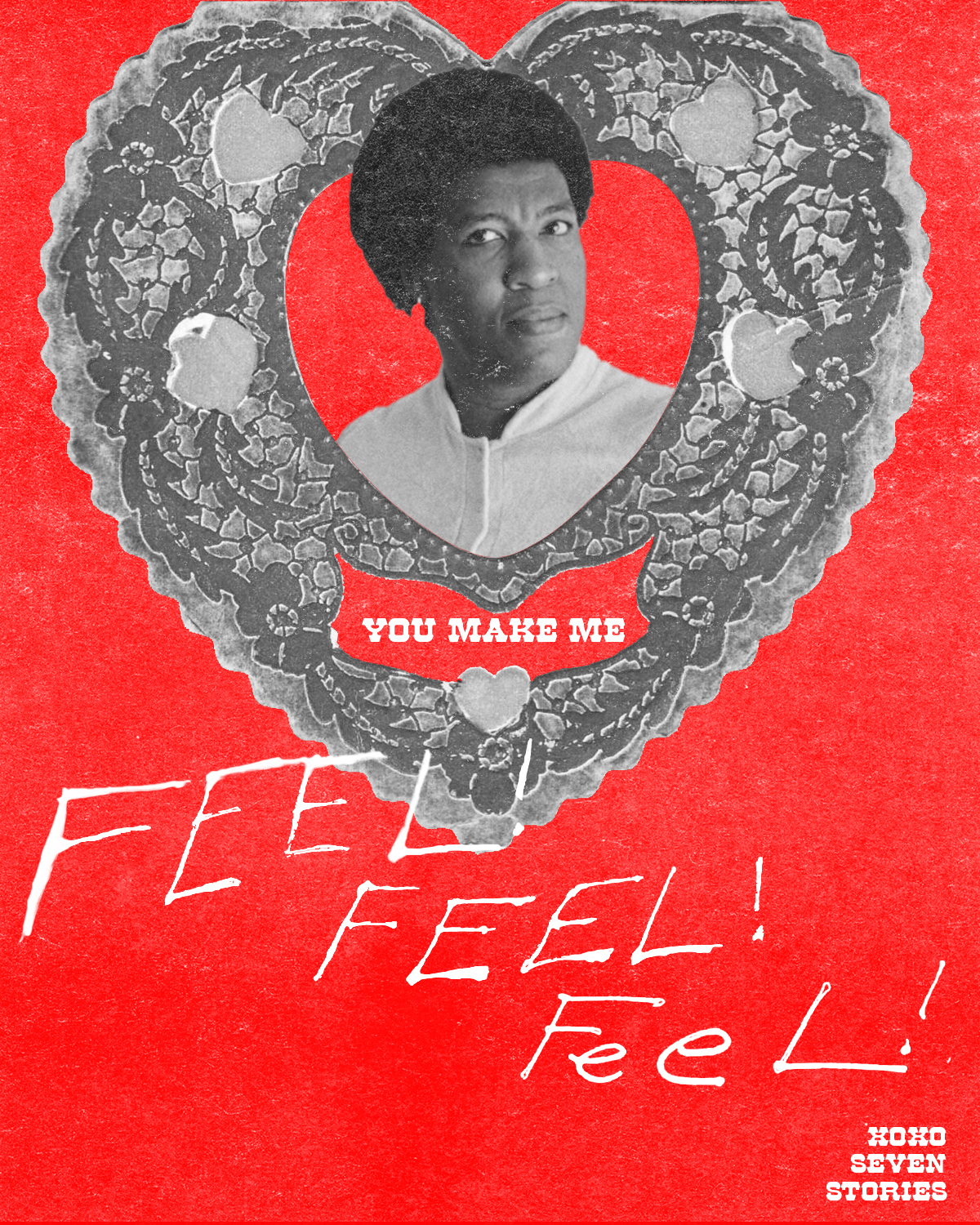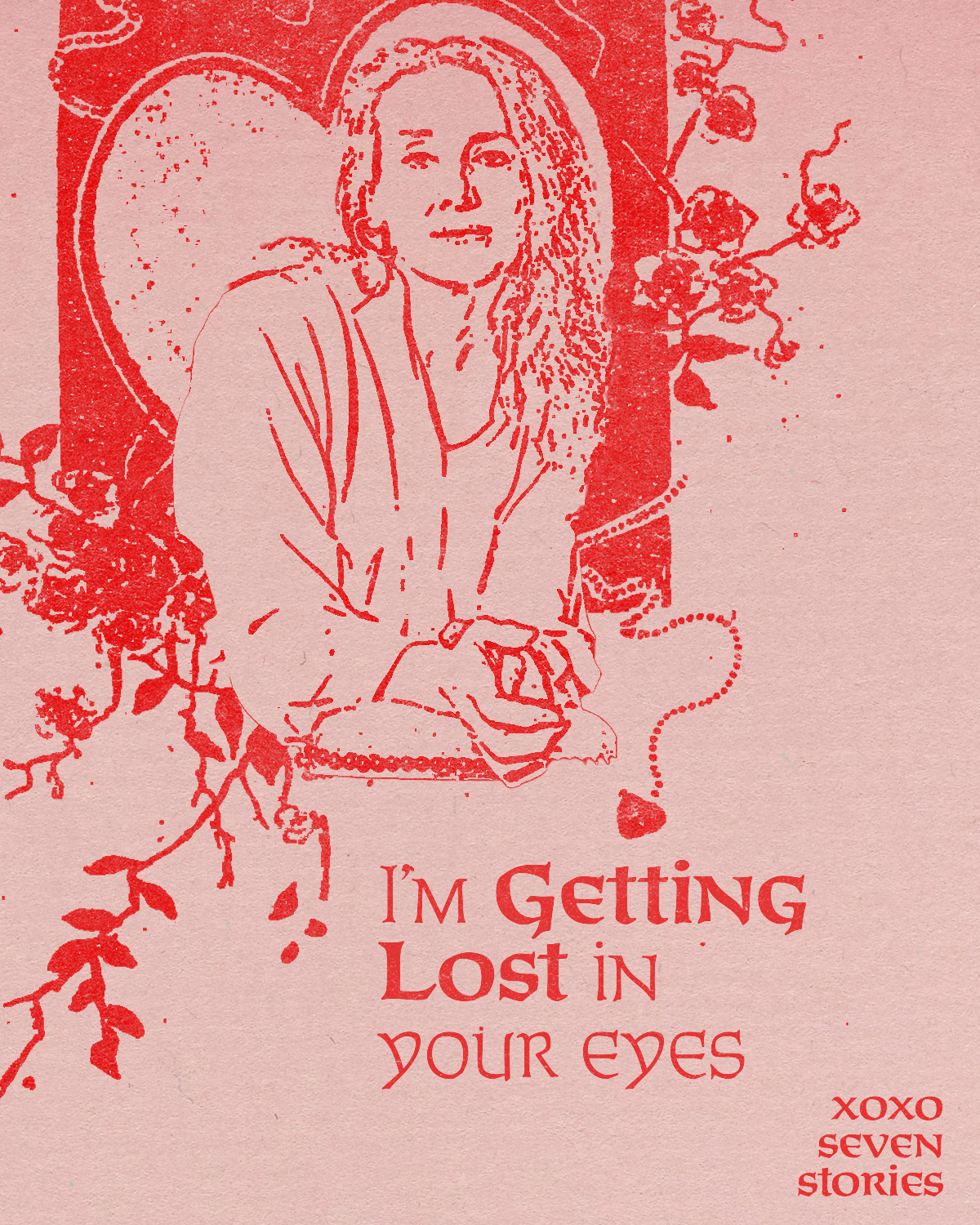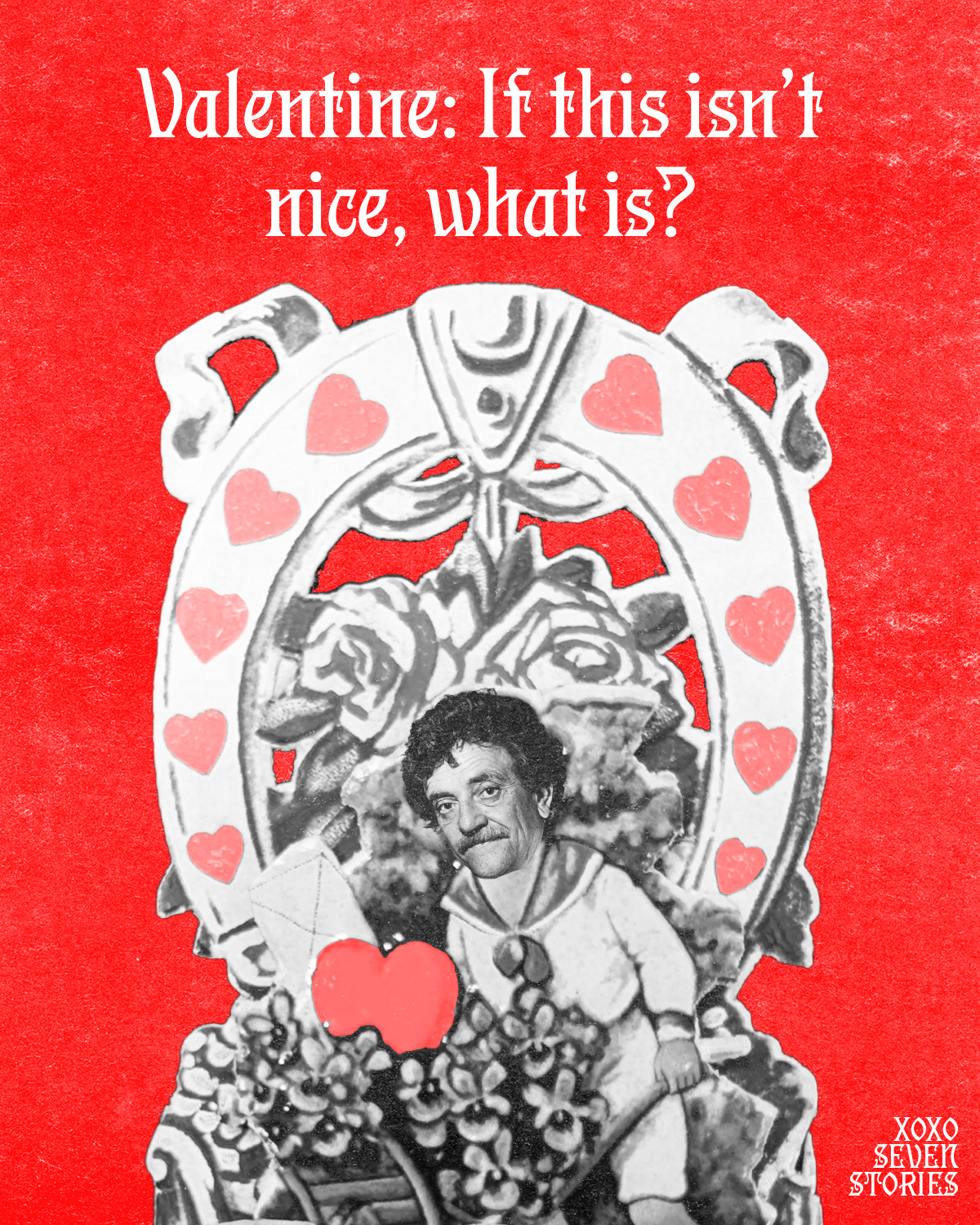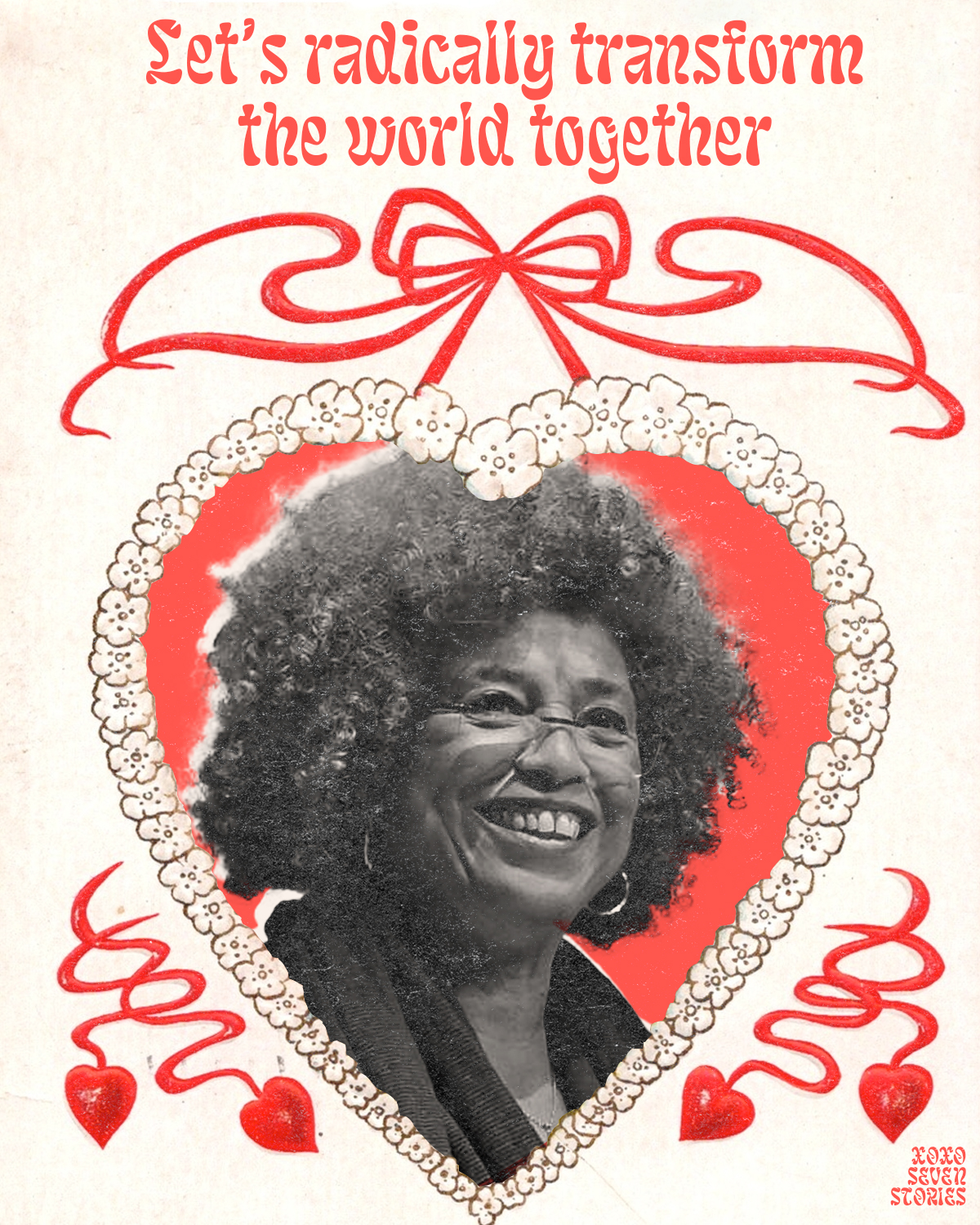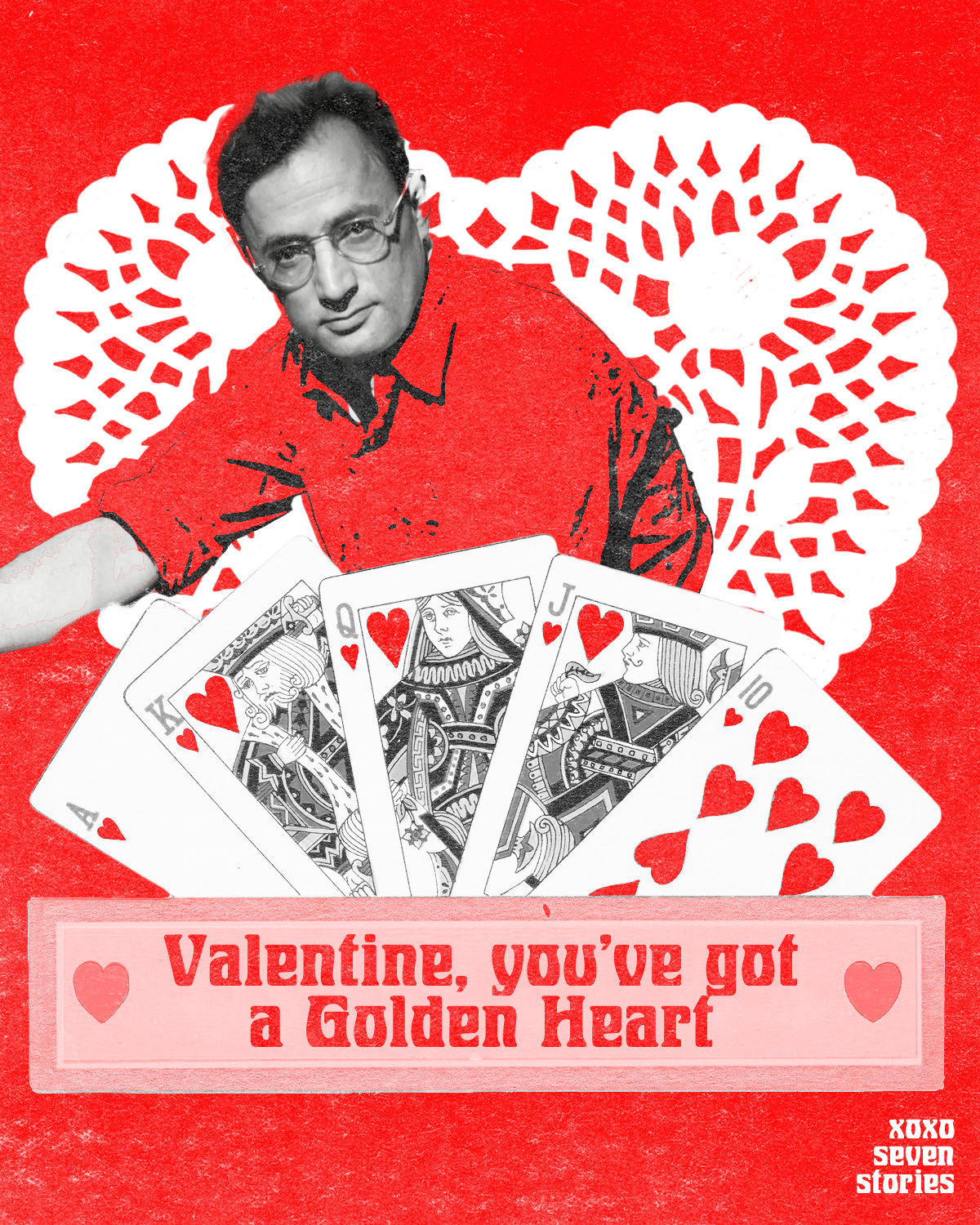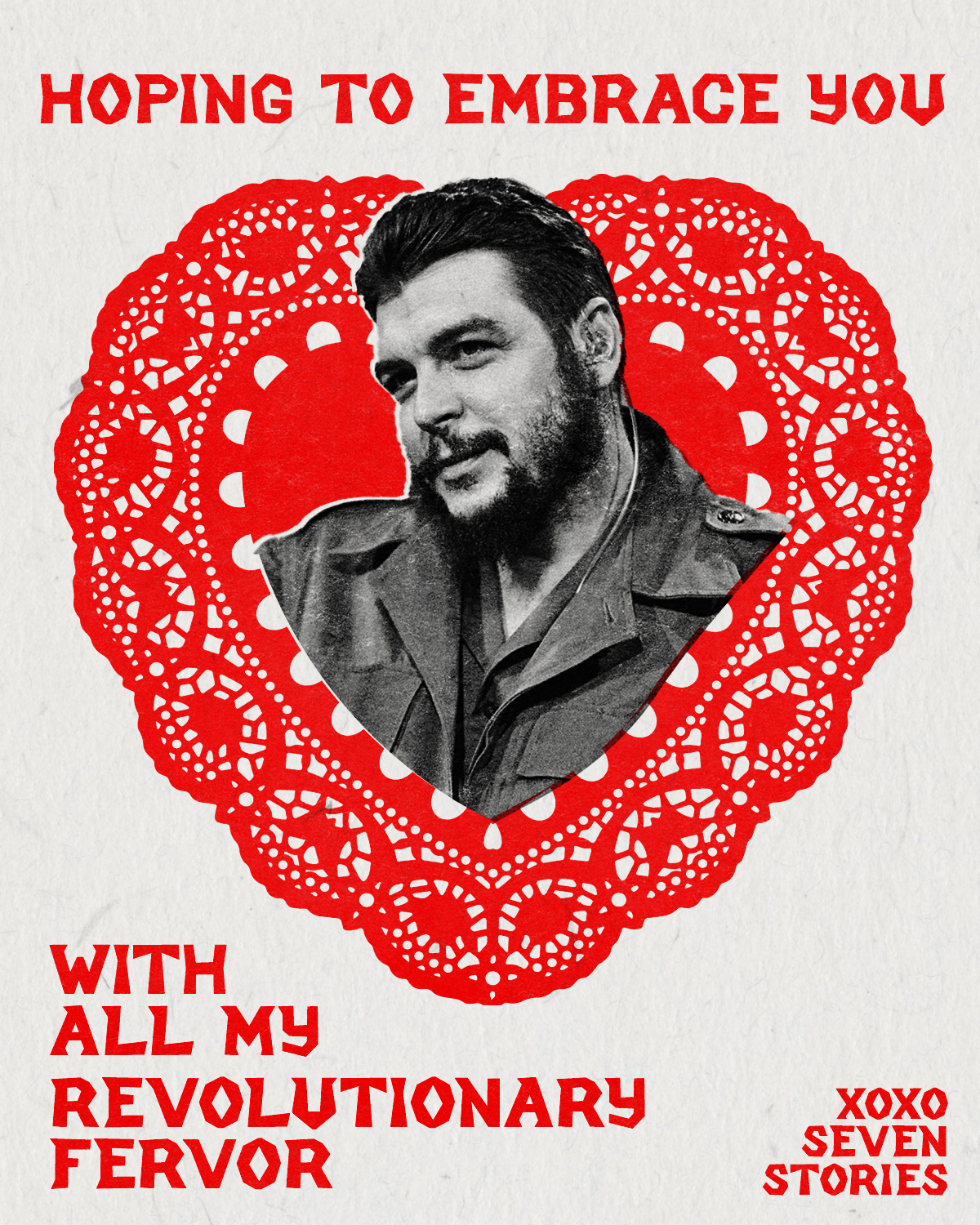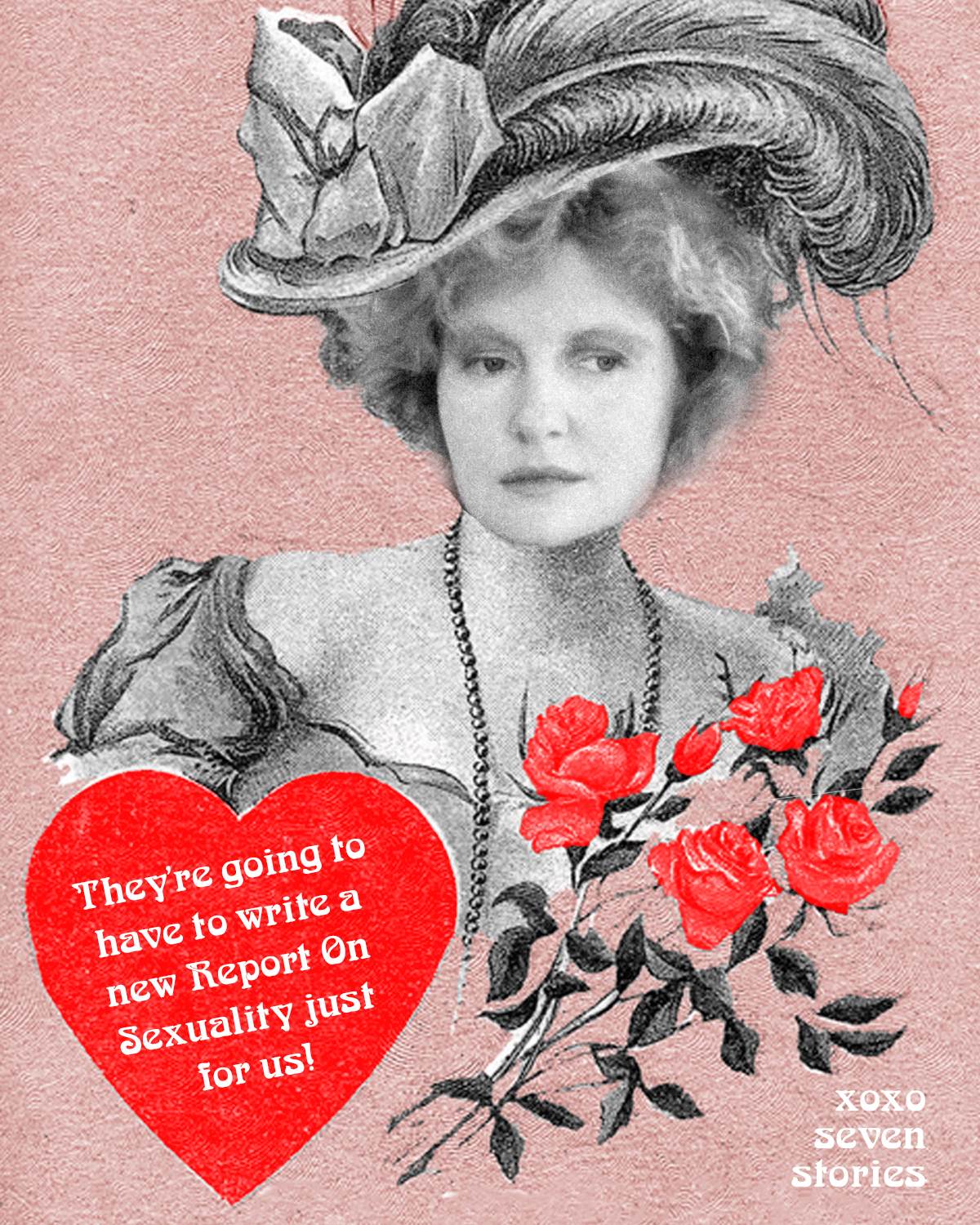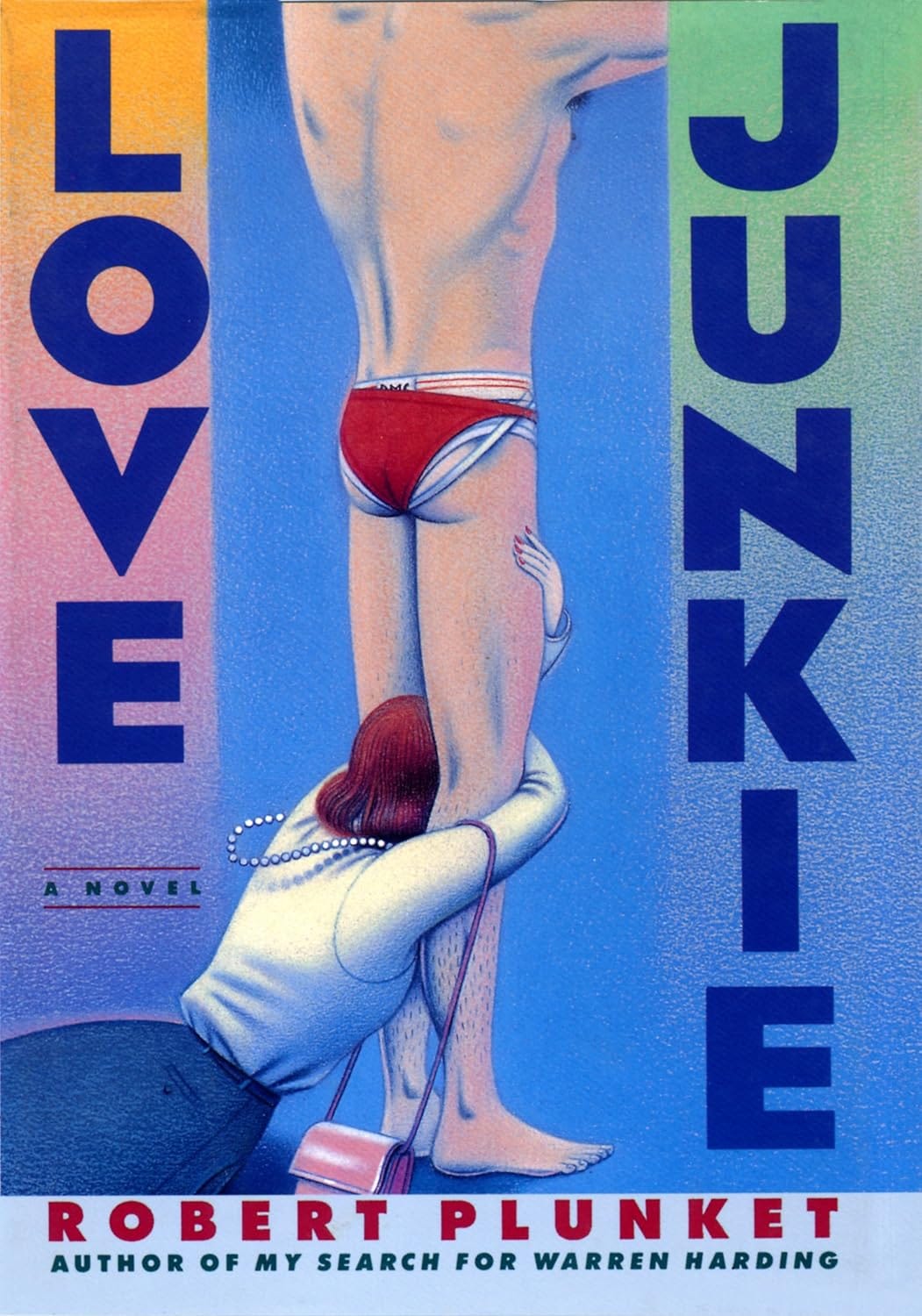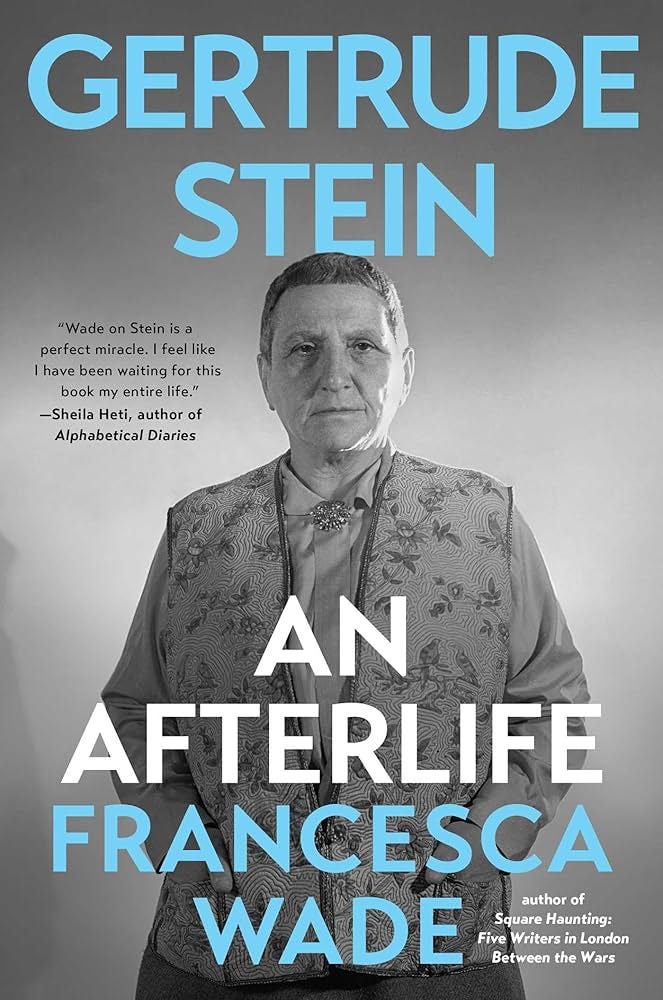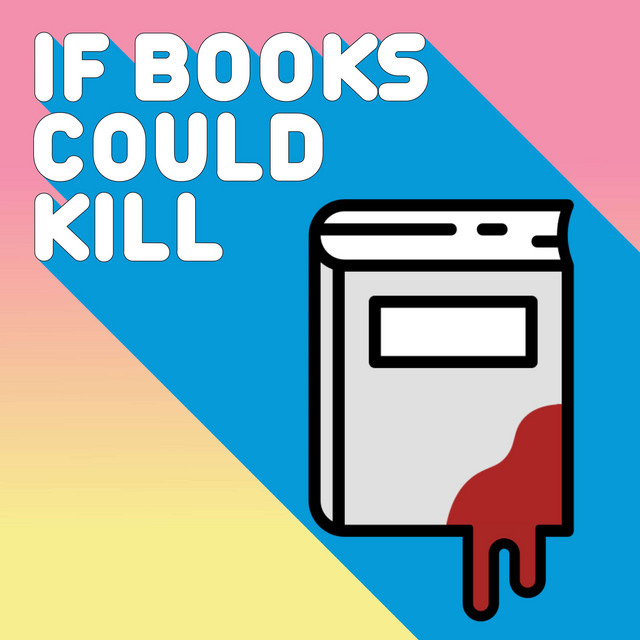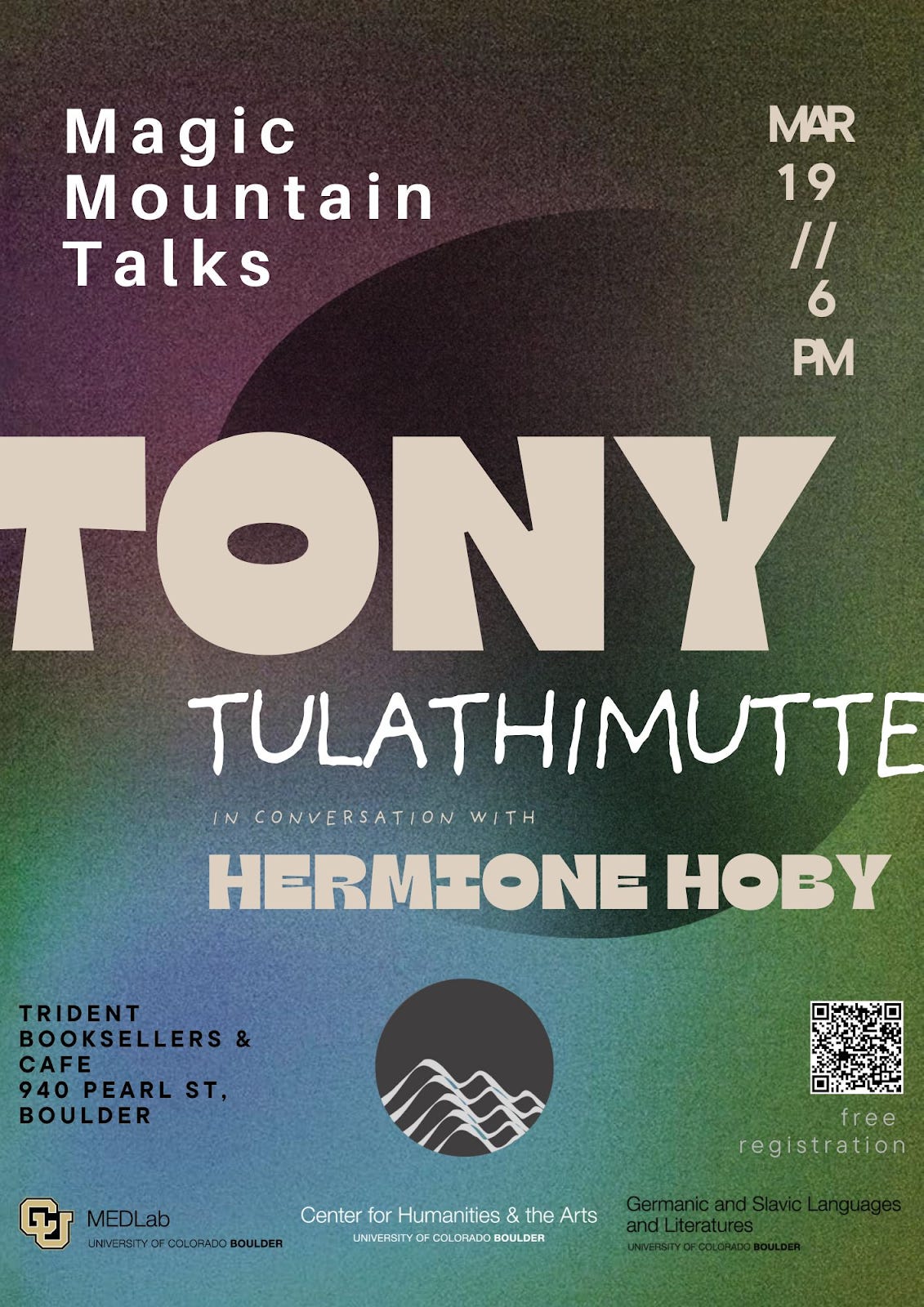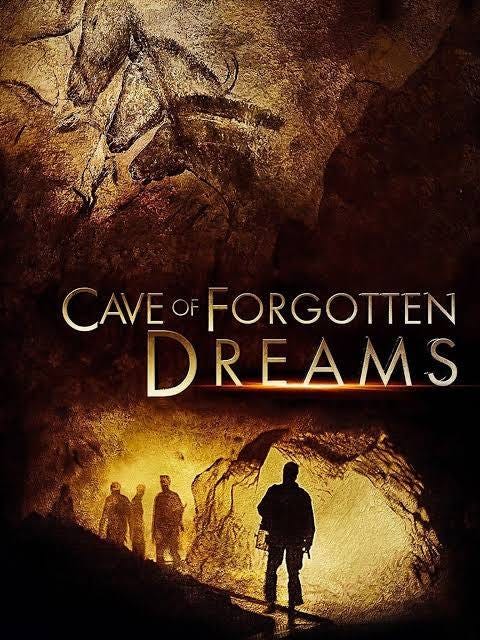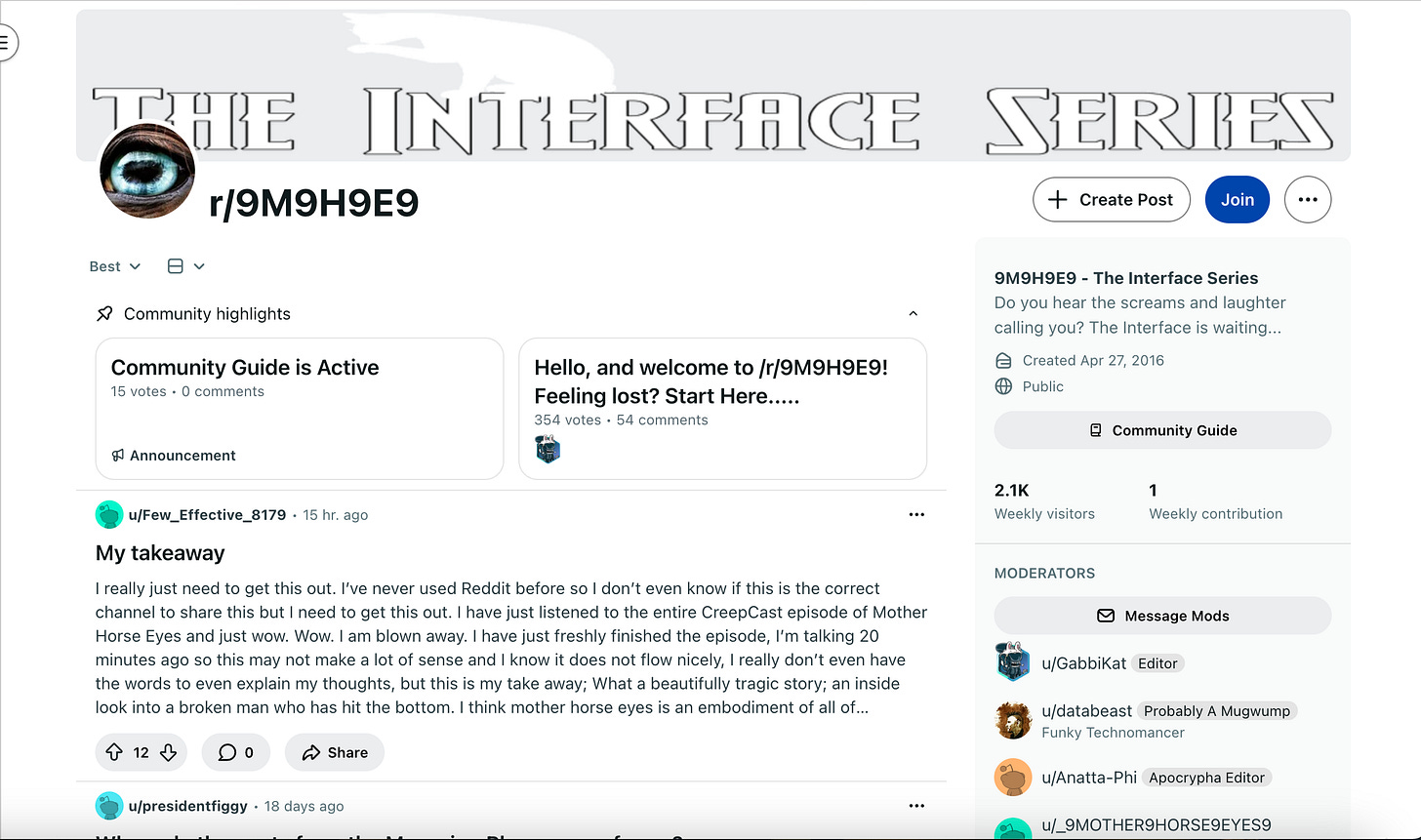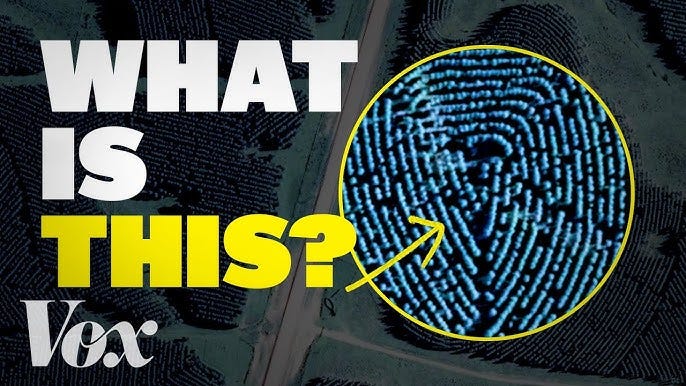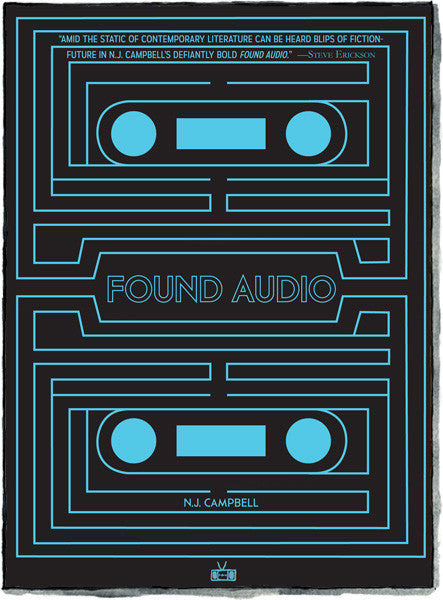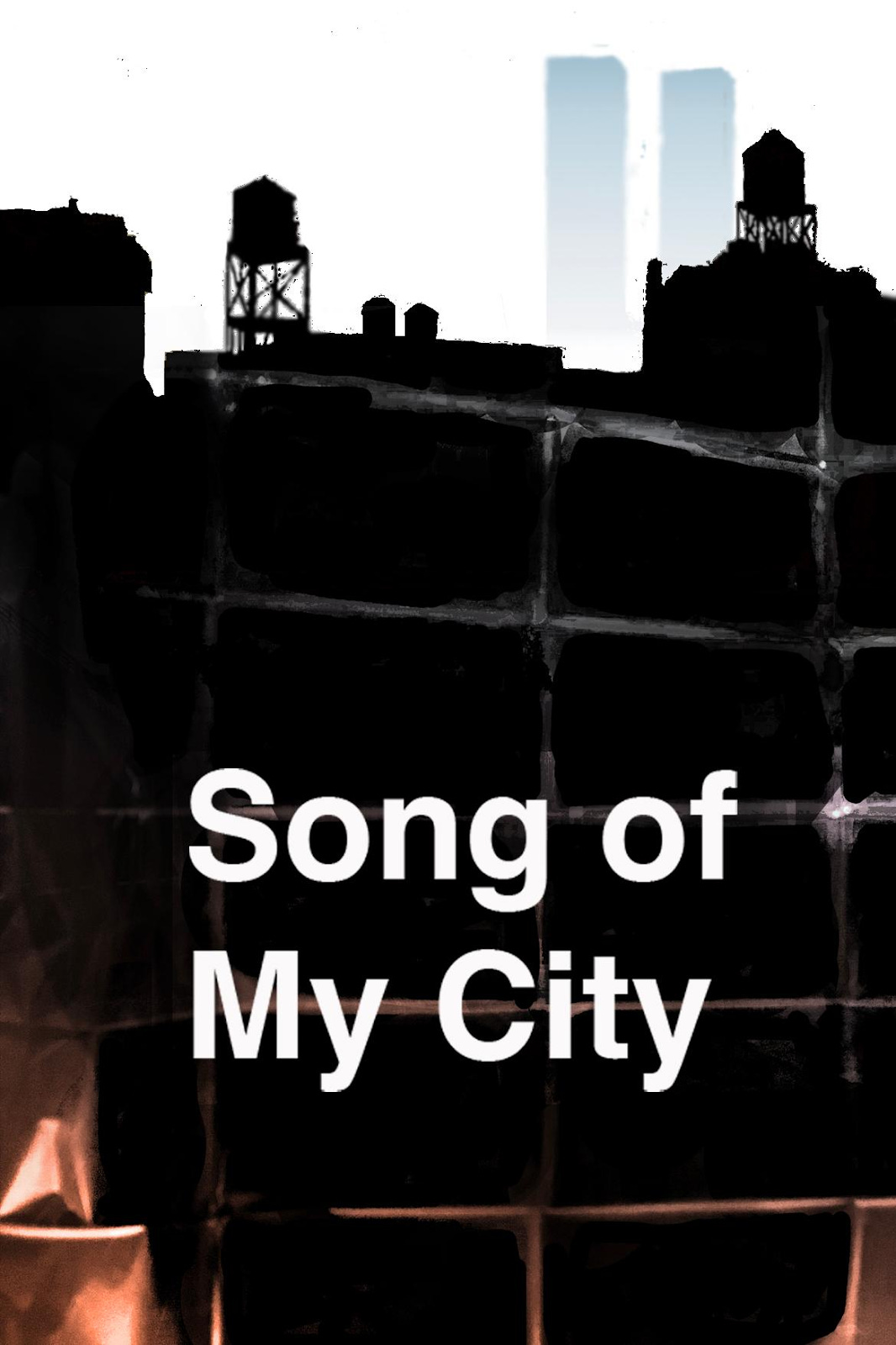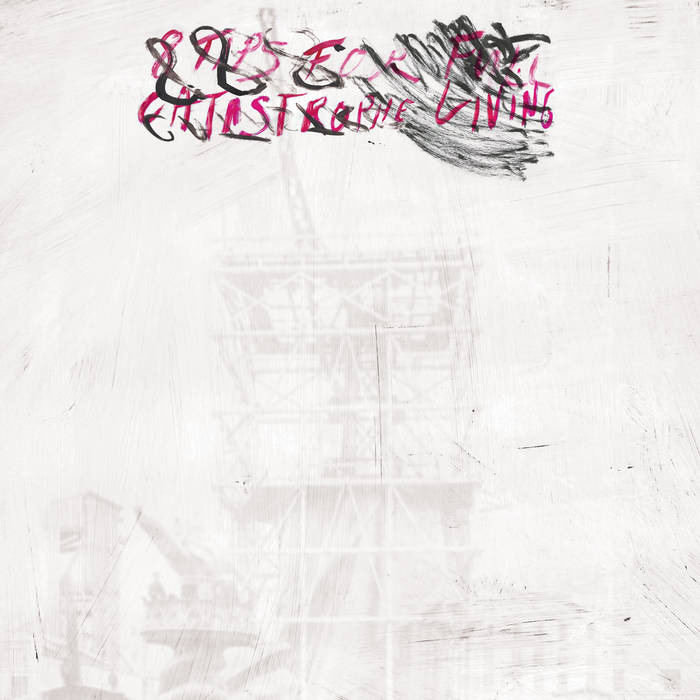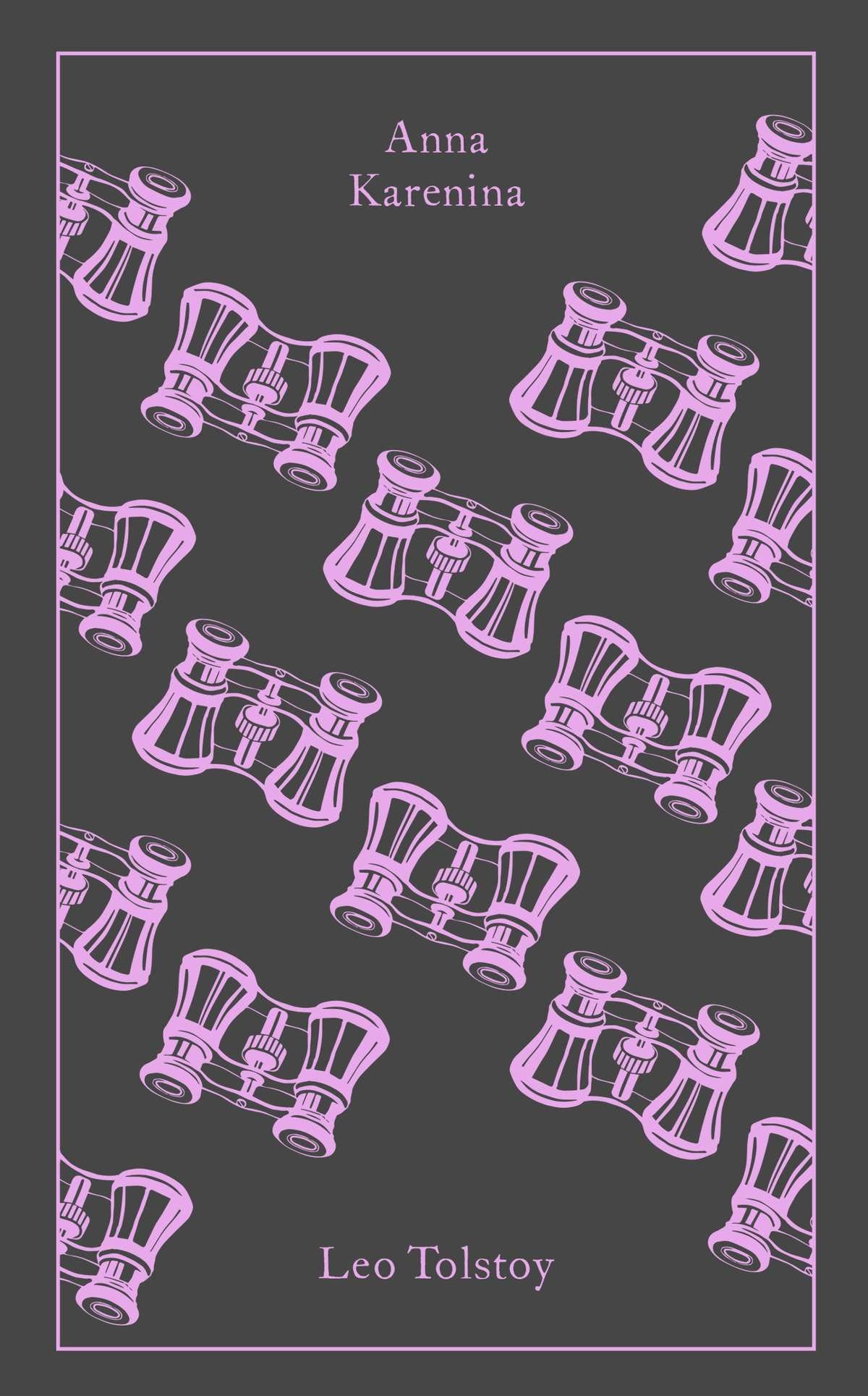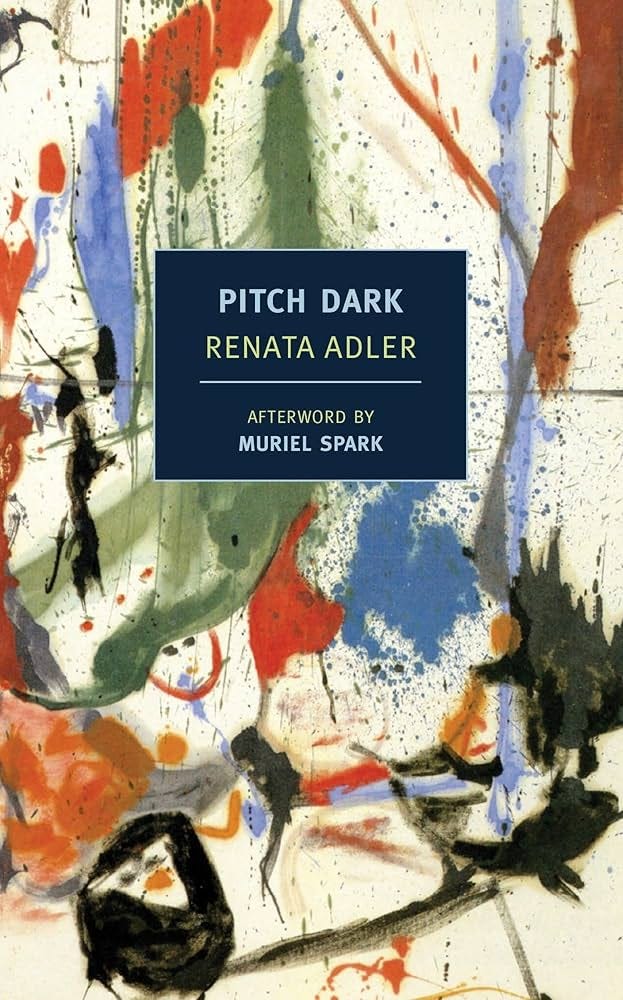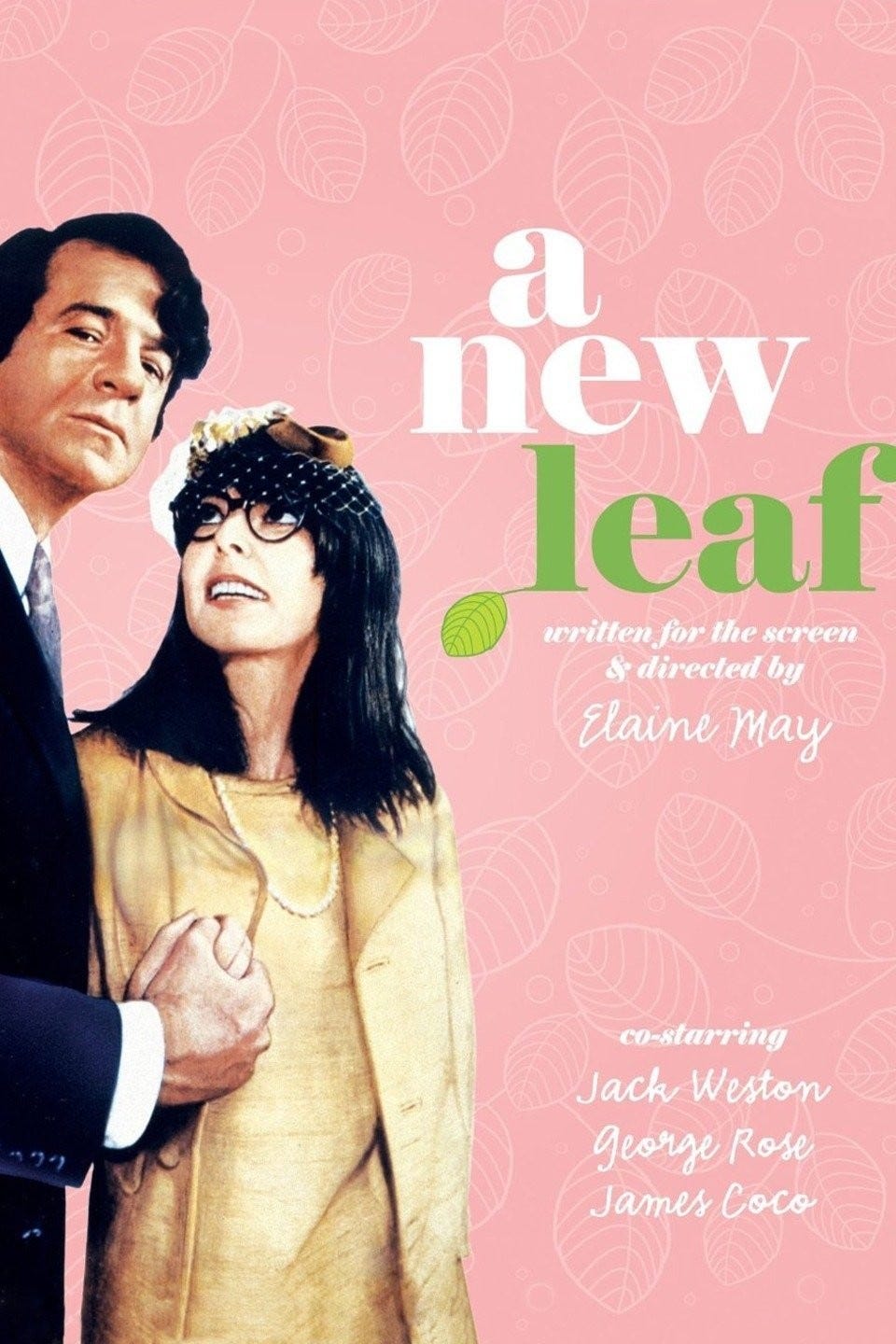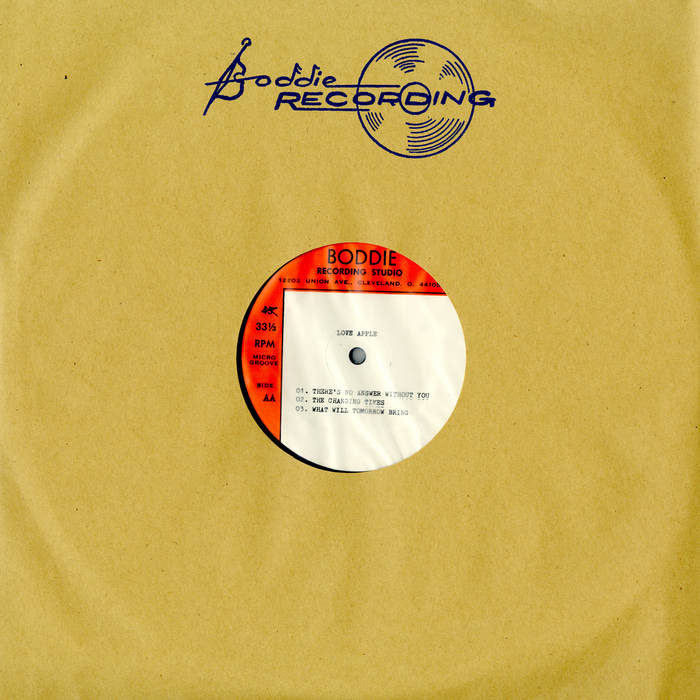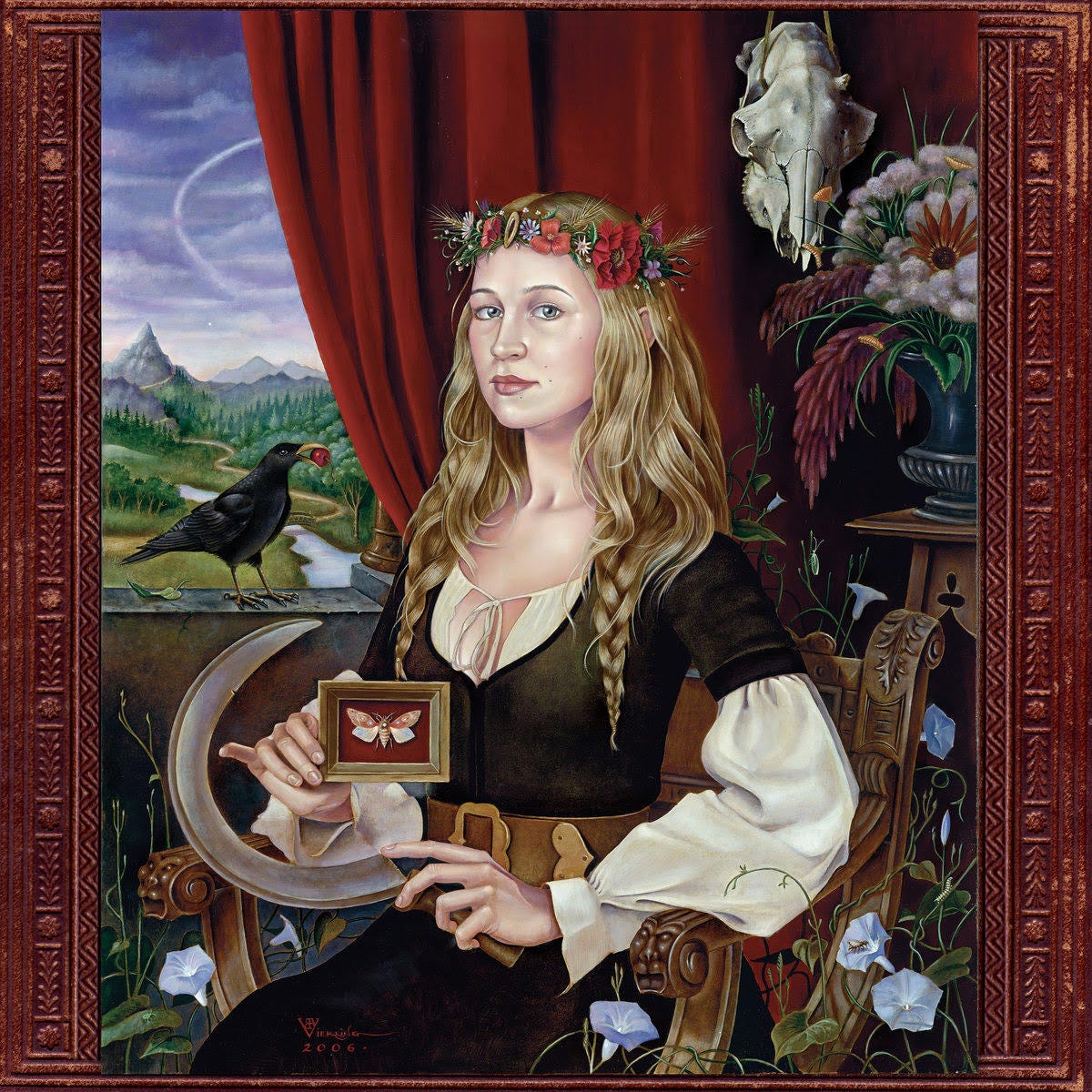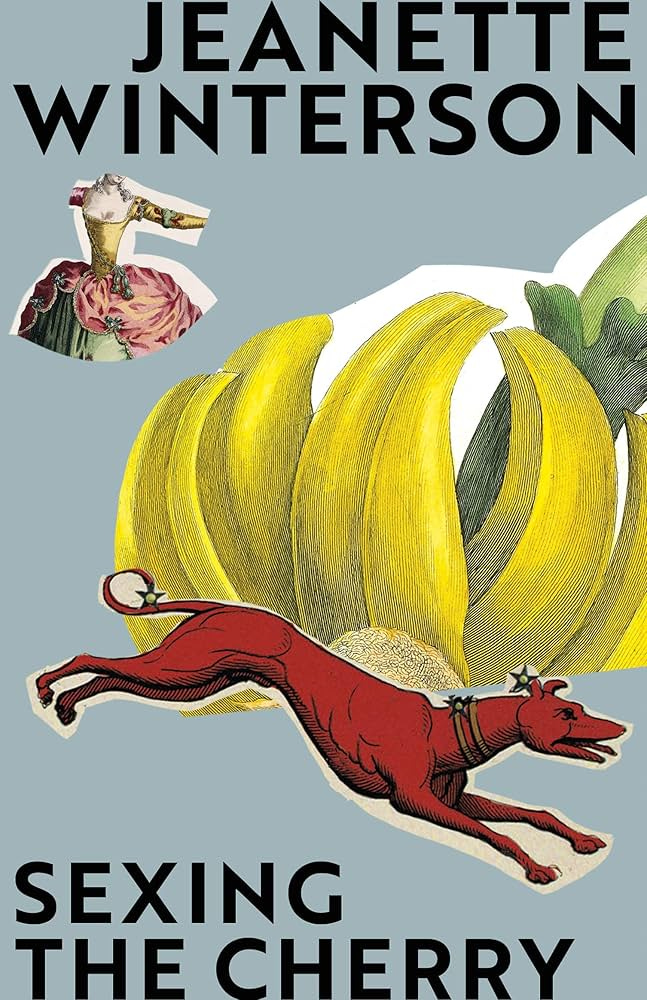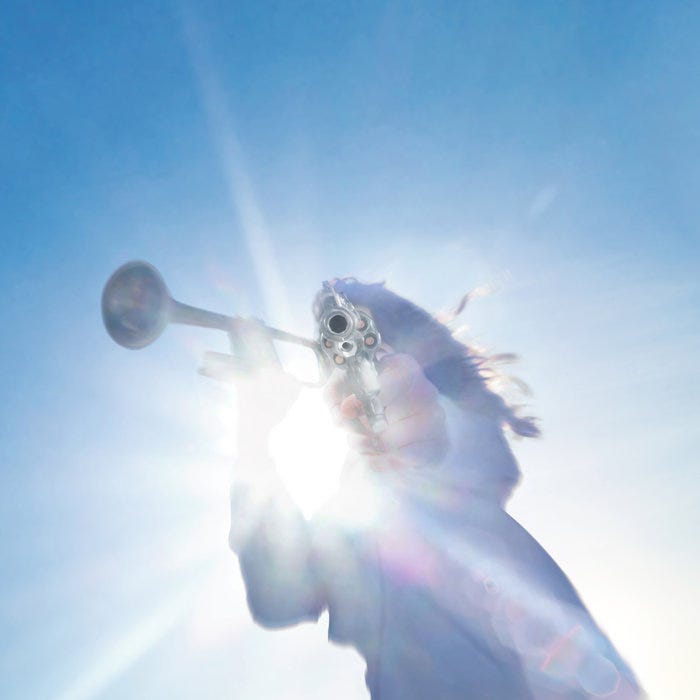Today we celebrate what would be the 71st birthday of the late Octavia Butler, a pioneer in the world of science fiction, with "The Book of Martha," a short story from Bloodchild.
In this story, Butler works through her lack of belief in the possibility of a universally appealing utopia with humor and careful consideration. God summons Martha Bes to effectively ameliorate the conditions of humanity. As a result of the exchange, Martha settles on an original plan to satisfy God's seemingly impossible challenge.
The Book of Martha
by Octavia Butler
"It’s difficult, isn’t it?” God said with a weary smile. “You’re truly free for the first time. What could be more difficult than that?”
Martha Bes looked around at the endless grayness that was, along with God, all that she could see. In fear and confusion, she covered her broad black face with her hands. “If only I could wake up,” she whispered.
God kept silent but was so palpably, disturbingly present that even in the silence Martha felt rebuked. “Where is this?” she asked, not really wanting to know, not wanting to be dead when she was only forty-three. “Where am I?”
“Here with me,” God said.
“Really here?” she asked. “Not at home in bed dreaming? Not locked up in a mental institution? Not . . . not lying dead in a morgue?”
“Here,” God said softly. “With me.”
After a moment, Martha was able to take her hands from her face and look again at the grayness around her and at God. “This can’t be heaven,” she said. “There’s nothing here, no one here but you.”
“Is that all you see?” God asked.
This confused her even more. “Don’t you know what I see?” she demanded and then quickly softened her voice. “Don’t you know everything?”
God smiled. “No, I outgrew that trick long ago. You can’t imagine how boring it was.”
This struck Martha as such a human thing to say that her fear diminished a little—although she was still impossibly confused. She had, she remembered, been sitting at her computer, wrapping up one more day’s work on her fifth novel. The writing had been going well for a change, and she’d been enjoying it. For hours, she’d been spilling her new story onto paper in that sweet frenzy of creation that she lived for. Finally, she had stopped, turned the computer off, and realized that she felt stiff. Her back hurt. She was hungry and thirsty, and it was almost five A.M. She had worked through the night. Amused in spite of her various aches and pains, she got up and went to the kitchen to find something to eat.
And then she was here, confused and scared. The comfort of her small, disorderly house was gone, and she was standing before this amazing figure who had convinced her at once that he was God—or someone so powerful that he might as well be God. He had work for her to do, he said—work that would mean a great deal to her and to the rest of humankind.
If she had been a little less frightened, she might have laughed. Beyond comic books and bad movies, who said things like that?
“Why,” she dared to ask, “do you look like a twice-live-sized, bearded white man?” In fact, seated as he was on his huge thronelike chair, he looked, she thought, like a living version of Michelangelo’s Moses, a sculpture that she remembered seeing pictured in her college art-history textbook about twenty years before. Except that God was more fully dressed than Michelangelo’s Moses, wearing, from neck to ankles, the kind of long, white robe that she had so often seen in paintings of Christ.
“You see what your life has prepared you to see,” God said.
“I want to see what’s really here!”
“Do you? What you see is up to you, Martha. Everything is up to you.”
She sighed. “Do you mind if I sit down?”
And she was sitting. She did not sit down, but simply found herself sitting in a comfortable armchair that had surely not been there a moment before. Another trick, she thought resentfully—like the grayness, like the giant on his throne, like her own sudden appearance here. Everything was just one more effort to amaze and frighten her. And, of course, it was working. She was amazed and badly frightened. Worse, she disliked the giant for manipulating her, and this frightened her even more. Surely he could read her mind. Surely he would punish . . .
She made herself speak through her fear. “You said you had work for me.” She paused, licked her lips, tried to steady her voice. “What do you want me to do?”
He didn’t answer at once. He looked at her with what she read as amusement—looked at her long enough to make her even more uncomfortable.
“What do you want me to do?” she repeated, her voice stronger this time.
“I have a great deal of work for you,” he said at last. “As I tell you about it, I want you to keep three people in mind: Jonah, Job, and Noah. Remember them. Be guided by their stories.”
“All right,” she said because he had stopped speaking, and it seemed that she should say something. “All right.”
When she was a girl, she had gone to church and to Sunday School, to Bible class and to vacation Bible school. Her mother, only a girl herself, hadn’t known much about being a mother, but she had wanted her child to be “good,” and to her, “good” meant “religious.” As a result, Martha knew very well what the Bible said about Jonah, Job, and Noah. She had come to regard their stories as parables rather than literal truths, but she remembered them. God had ordered Jonah to go to the city of Nineveh and to tell the people there to mend their ways. Frightened, Jonah had tried to run away from the work and from God, but God had caused him to be shipwrecked, swallowed by a great fish, and given to know that he could not escape.
Job had been the tormented pawn who lost his property, his children, and his health, in a bet between God and Satan. And when Job proved faithful in spite of all that God had permitted Satan to do to him, God rewarded Job with even greater wealth, new children, and restored health.
As for Noah, of course, God ordered him to build an ark and save his family and a lot of animals because God had decided to flood the world and kill everyone and everything else.
Why was she to remember these three Biblical figures in particular? What had they do with her—especially Job and all his agony?
“This is what you’re to do,” God said. “You will help humankind to survive its greedy, murderous, wasteful adolescence. Help it to find less destructive, more peaceful, sustainable ways to live.”
Martha stared at him. After a while, she said feebly, “. . . what?”
“If you don’t help them, they will be destroyed.”
“You’re going to destroy them . . . again?” she whispered.
“Of course not,” God said, sounding annoyed. “They’re well on the way to destroying billions of themselves by greatly changing the ability of the earth to sustain them. That’s why they need help. That’s why you will help them.”
“How?” she asked. She shook her head. “What can I do?”
“Don’t worry,” God said. “I won’t be sending you back home with another message that people can ignore or twist to suit themselves. It’s too late for that kind of thing anyway.” God shifted on his throne and looked at her with his head cocked to one side. “You’ll borrow some of my power,” he said. “You’ll arrange it so that people treat one another better and treat their environment more sensibly. You’ll give them a better chance to survive than they’ve given themselves. I’ll lend you the power, and you’ll do this.” He paused, but this time she could think of nothing to say. After a while, he went on.
“When you’ve finished your work, you’ll go back and live among them again as one of their lowliest. You’re the one who will decide what that will mean, but whatever you decide is to be the bottom level of society, the lowest class or caste or race, that’s what you’ll be.”
This time when he stopped talking, Martha laughed. She felt overwhelmed with questions, fears, and bitter laughter, but it was the laughter that broke free. She needed to laugh. It gave her strength somehow.
“I was born on the bottom level of society,” she said. “You must have known that.”
God did not answer.
“Sure you did.” Martha stopped laughing and managed, somehow, not to cry. She stood up, stepped toward God. “How could you not know? I was born poor, black, and female to a fourteen-year-old mother who could barely read. We were homeless half the time while I was growing up. Is that bottom-level enough for you? I was born on the bottom, but I didn’t stay there. I didn’t leave my mother there, either. And I’m not going back there!”
Still God said nothing. He smiled.
Martha sat down again, frightened by the smile, aware that she had been shouting—shouting at God! After a while, she whispered, “Is that why you chose me to do this . . . this work? Because of where I came from?”
“I chose you for all that you are and all that you are not,” God said. “I could have chosen someone much poorer and more downtrodden. I chose you because you were the one I wanted for this.”
Martha couldn’t decide whether he sounded annoyed. She couldn’t decide whether it was an honor to be chosen to do a job so huge, so poorly defined, so impossible.
“Please let me go home,” she whispered. She was instantly ashamed of herself. She was begging, sounding pitiful, humiliating herself. Yet these were the most honest words she’d spoken so far.
“You’re free to ask me questions,” God said as though he hadn’t heard her plea at all. “You’re free to argue and think and investigate all of human history for ideas and warnings. You’re free to take all the time you need to do these things. As I said earlier, you’re truly free. You’re even free to be terrified. But I assure you, you will do this work.”
Martha thought of Job, Jonah, and Noah. After a while, she nodded.
“Good,” God said. He stood up and stepped toward her. He was at least twelve feet high and inhumanly beautiful. He literally glowed. “Walk with me,” he said.
And abruptly, he was not twelve feet high. Martha never saw him change, but now he was her size—just under six feet—and he no longer glowed. Now when he looked at her, they were eye to eye. He did look at her. He saw that something was disturbing her, and he asked, “What is it now? Has your image of me grown feathered wings or a blinding halo?”
“Your halo’s gone,” she answered. “And you’re smaller. More normal.”
“Good,” he said. “What else do you see?”
“Nothing. Grayness.”
“That will change.”
It seemed that they walked over a smooth, hard, level surface, although when she looked down, she couldn’t see her feet. It was as though she walked through ankle-high, ground-hugging fog.
“What are we walking on?” she asked.
“What would you like?” God asked. “A sidewalk? Beach sand? A dirt road?”
“A healthy, green lawn,” she said, and was somehow not surprised to find herself walking on short, green grass. “And there should be trees,” she said, getting the idea and discovering she liked it. “There should be sunshine—blue sky with a few clouds. It should be May or early June.”
And it was so. It was as though it had always been so. They were walking through what could have been a vast city park.
Martha looked at God, her eyes wide. “Is that it?” she whispered. “I’m supposed to change people by deciding what they’ll be like, and then just . . . just saying it?”
“Yes,” God said.
And she went from being elated to—once again—being terrified. “What if I say something wrong, make a mistake?”
“You will.”
“But . . . people could get hurt. People could die.”
God went to a huge deep red Norway Maple tree and sat down beneath it on a long wooden bench. Martha realized that he had created both the ancient tree and the comfortable-looking bench only a moment before. She knew this, but again, it had happened so smoothly that she was not jarred by it.
“It’s so easy,” she said. “Is it always this easy for you?”
God sighed. “Always,” he said.
She thought about that—his sigh, the fact that he looked away into the trees instead of at her. Was an eternity of absolute ease just another name for hell? Or was that just the most sacrilegious thought she’d had so far? She said, “I don’t want to hurt people. Not even by accident.”
God turned away from the trees, looked at her for several seconds, then said, “It would be better for you if you had raised a child or two.”
Then, she thought with irritation, he should have chosen someone who’d raised a child or two. But she didn’t have the courage to say that. Instead, she said, “Won’t you fix it so I don’t hurt or kill anyone? I mean, I’m new at this. I could do something stupid and wipe people out and not even know I’d done it until afterward.”
“I won’t fix things for you,” God said. “You have a free hand.”
She sat down next to him because sitting and staring out into the endless park was easier than standing and facing him and asking him questions that she thought might make him angry. She said, “Why should it be my work? Why don’t you do it? You know how. You could do it without making mistakes. Why make me do it? I don’t know anything.”
“Quite right,” God said. And he smiled. “That’s why.”
She thought about this with growing horror. “Is it just a game to you, then?” she asked. “Are you playing with us because you’re bored?”
God seemed to consider the question. “I’m not bored,” he said. He seemed pleased somehow. “You should be thinking about the changes you’ll make. We can talk about them. You don’t have to just suddenly proclaim.”
She looked at him, then stared down at the grass, trying to get her thoughts in order. “Okay. How do I start?”
“Think about this: What change would you want to make if you could make only one? Think of one important change.”
She looked at the grass again and thought about the novels she had written. What if she were going to write a novel in which human beings had to be changed in only one positive way? “Well,” she said after a while, “the growing population is making a lot of the other problems worse. What if people could only have two children? I mean, what if people who wanted children could only have two, no matter how many more they wanted or how many medical techniques they used to try to get more?”
“You believe the population problem is the worst one, then?” God asked.
“I think so,” she said. “Too many people. If we solve that one, we’ll have more time to solve other problems. And we can’t solve it on our own. We all know about it, but some of us won’t admit it. And nobody wants some big government authority telling them how many kids to have.” She glanced at God and saw that he seemed to be listening politely. She wondered how far he would let her go. What might offend him. What might he do to her if he were offended? “So everyone’s reproductive system shuts down after two kids,” she said. “I mean, they get to live as long as before, and they aren’t sick. They just can’t have kids any more.”
“They’ll try,” God said. “The effort they put into building pyramids, cathedrals, and moon rockets will be as nothing to the effort they’ll put into trying to end what will seem to them a plague of barrenness. What about people whose children die or are seriously disabled? What about a woman who’s first child is a result of rape? What about surrogate motherhood? What about men who become fathers without realizing it? What about cloning?”
Martha stared at him, chagrined. “That’s why you should do this. It’s too complicated.”
Silence.
“All right,” Martha sighed and gave up. “All right. What if even with accidents and modern medicine, even something like cloning, the two-kid limit holds. I don’t know how that could be made to work, but you do.”
“It could be made to work,” God said, “but keep in mind that you won’t be coming here again to repair any changes you make. What you do is what people will live with. Or in this case, die with.”
“Oh,” Martha said. She thought for a moment, then said, “Oh, no.”
“They would last for a good many generations,” God said. “But they would be dwindling all the time. In the end, they would be extinguished. With the usual diseases, disabilities, disasters, wars, deliberate childlessness, and murder, they wouldn’t be able to replace themselves. Think of the needs of the future, Martha, as well as the needs of the present.”
“I thought I was,” she said. “What if I made four kids the maximum number instead of two?”
God shook his head. “Free will coupled with morality has been an interesting experiment. Free will is, among other things, the freedom to make mistakes. One group of mistakes will sometimes cancel another. That’s saved any number of human groups, although it isn’t dependable. Sometimes mistakes cause people to be wiped out, enslaved, or driven from their homes because they’ve so damaged or altered their land or their water or their climate. Free will isn’t a guarantee of anything, but it’s a potentially useful tool—too useful to erase casually.”
“I thought you wanted me to put a stop to war and slavery and environmental destruction!” Martha snapped, remembering the history of her own people. How could God be so casual about such things?
God laughed. It was a startling sound—deep, full, and, Martha thought, inappropriately happy. Why would this particular subject make him laugh? Was he God? Was he Satan? Martha, in spite of her mother’s efforts, had not been able to believe in the literal existence of either. Now, she did not know what to think—or what to do.
God recovered himself, shook his head, and looked at Martha. “Well, there’s no hurry,” he said. “Do you know what a nova is Martha?”
Martha frowned. “It’s . . . a star that explodes,” she said, willing, even eager, to be distracted from her doubts.
“It’s a pair of stars,” God said. “A large one—a giant—and a small, very dense dwarf. The dwarf pulls material from the giant. After a while, the dwarf has taken more material than it can control, and it explodes. It doesn’t necessarily destroy itself, but it does throw off a great deal of excess material. It makes a very bright, violent display. But once the dwarf has quieted down, it begins to siphon material from the giant again. It can do this over and over. That’s what a nova is. If you change it—move the two stars farther apart or equalize their density, then it’s no longer a nova.”
Martha listened, catching his meaning even though she didn’t want to. “Are you saying that if . . . if humanity is changed, it won’t be humanity any more?”
“I’m saying more than that,” God told her. “I’m saying that even though this is true, I will permit you to do it. What you decide should be done with humankind will be done. But whatever you do, your decisions will have consequences. If you limit their fertility, you will probably destroy them. If you limit their competitiveness or their inventiveness, you might destroy their ability to survive the many disasters and challenges that they must face.”
Worse and worse, Martha thought, and she actually felt nauseous with fear. She turned away from God, hugging herself, suddenly crying, tears streaming down her face. After a while, she sniffed and wiped her face on her hands, since she had nothing else. “What will you do to me if I refuse?” she asked, thinking of Job and Jonah in particular.
“Nothing.” God didn’t even sound annoyed. “You won’t refuse.”
“But what if I do? What if I really can’t think of anything worth doing?”
“That won’t happen. But if it did somehow, and if you asked, I would send you home. After all, there are millions of human beings who would give anything to do this work.”
And, instantly, she thought of some of these—people who would be happy to wipe out whole segments of the population whom they hated and feared, or people who would set up vast tyrannies that forced everyone into a single mold, no matter how much suffering that created. And what about those who would treat the work as fun—as nothing more than a good-guys-versus-bad-guys computer game, and damn the consequences. There were people like that. Martha knew people like that.
But God wouldn’t choose that kind of person. If he was God. Why had he chosen her, after all? For all of her adult life, she hadn’t even believed in God as a literal being. If this terrifyingly powerful entity, God or not, could choose her, he could make even worse choices.
After a while, she asked, “Was there really a Noah?”
“Not one man dealing with a worldwide flood,” God said. “But there have been a number of people who’ve had to deal with smaller disasters.”
“People you ordered to save a few and let the rest die?”
“Yes,” God said.
She shuddered and turned to face him again. “And what then? Did they go mad?” Even she could hear the disapproval and disgust in her voice.
God chose to hear the question as only a question. “Some took refuge in madness, some in drunkenness, some in sexual license. Some killed themselves. Some survived and lived long, fruitful lives.”
Martha shook her head and managed to keep quiet.
“I don’t do that any longer,” God said.
No, Martha thought. Now he had found a different amusement. “How big a change do I have to make?” she asked. “What will please you and cause you to let me go and not bring in someone else to replace me?”
“I don’t know,” God said, and he smiled. He rested his head back against the tree. “Because I don’t know what you will do. That’s a lovely sensation—anticipating, not knowing.”
“Not from my point of view,” Martha said bitterly. After a while, she said in a different tone, “Definitely not from my point of view. Because I don’t know what to do. I really don’t.”
“You write stories for a living,” God said. “You create characters and situations, problems and solutions. That’s less than I’ve given you to do.”
“But you want me to tamper with real people. I don’t want do that. I’m afraid I’ll make some horrible mistake.”
“I’ll answer your questions,” God said. “Ask.”
She didn’t want to ask. After a while, though, she gave in. “What, exactly, do you want? A utopia? Because I don’t believe in them. I don’t believe it’s possible to arrange a society so that everyone is content, everyone has what he or she wants.”
“Not for more than a few moments,” God said. “That’s how long it would take for someone to decide that he wanted what his neighbor had—or that he wanted his neighbor as a slave of one kind or another, or that he wanted his neighbor dead. But never mind. I’m not asking you to create a utopia, Martha, although it would be interesting to see what you could come up with.”
“So what are you asking me to do?”
“To help them, of course. Haven’t you wanted to do that?”
“Always,” she said. “And I never could in any meaningful way. Famines, epidemics, floods, fires, greed, slavery, revenge, stupid, stupid wars . . .”
“Now you can. Of course, you can’t put an end to all of those things without putting an end to humanity, but you can diminish some of the problems. Fewer wars, less covetousness, more forethought and care with the environment. . . . What might cause that?”
She looked at her hands, then at him. Something had occurred to her as he spoke, but it seemed both too simple and too fantastic, and to her personally, perhaps, too painful. Could it be done? Should it be done? Would it really help if it were done? She asked, “Was there really anything like the Tower of Babel? Did you make people suddenly unable to understand each other?”
God nodded. “Again, it happened several times in one way or another.”
“So what did you do? Change their thinking somehow, alter their memories?”
“Yes, I’ve done both. Although before literacy, all I had to do was divide them physically, send one group to a new land or give one group a custom that altered their mouths—knocking out the front teeth during puberty rites, for instance. Or give them a strong aversion to something others of their kind consider precious or sacred or—”
To her amazement, Martha interrupted him. “What about changing people’s . . . I don’t know, their brain activity. Can I do that?”
“Interesting,” God said. “And probably dangerous. But you can do that if you decide to. What do you have in mind?”
“Dreams,” she said. “Powerful, unavoidable, realistic dreams that come every time people sleep.”
“Do you mean,” God asked, “that they should be taught some lesson through their dreams?”
“Maybe. But I really mean that somehow people should spend a lot of their energy in their dreams. They would have their own personal best of all possible worlds during their dreams. The dreams should be much more realistic and intense than most dreams are now. Whatever people love to do most, they should dream about doing it, and the dreams should change to keep up with their individual interests. Whatever grabs their attention, whatever they desire, they can have it in their sleep. In fact, they can’t avoid having it. Nothing should be able to keep the dreams away—not drugs, not surgery, not anything. And the dreams should satisfy much more deeply, more thoroughly, than reality can. I mean, the satisfaction should be in the dreaming, not in trying to make the dream real.”
God smiled. “Why?”
“I want them to have the only possible utopia.” Martha thought for a moment. “Each person will have a private, perfect utopia every night—or an imperfect one. If they crave conflict and struggle, they get that. If they want peace and love, they get that. Whatever they want or need comes to them. I think if people go to a . . . well, a private heaven every night, it might take the edge off their willingness to spend their waking hours trying to dominate or destroy one another.” She hesitated. “Won’t it?”
God was still smiling. “It might. Some people will be taken over by it as though it were an addictive drug. Some will try to fight it in themselves or others. Some will give up on their lives and decide to die because nothing they do matters as much as their dreams. Some will enjoy it and try to go on with their familiar lives, but even they will find that the dreams interfere with their relations with other people. What will humankind in general do? I don’t know.” He seemed interested, almost excited. “I think it might dull them too much at first—until they’re used to it. I wonder whether they can get used to it.”
Martha nodded. “I think you’re right about it dulling them. I think at first most people will lose interest in a lot of other things—including real, wide-awake sex. Real sex is risky to both the health and the ego. Dream sex will be fantastic and not risky at all. Fewer children will be born for a while.”
“And fewer of those will survive,” God said.
“What?”
“Some parents will certainly be too involved in dreams to take care of their children. Loving and raising children is risky, too, and it’s hard work.
“That shouldn’t happen. Taking care of their kids should be the one thing that parents want to do for real in spite of the dreams. I don’t want to be responsible for a lot of neglected kids.”
“So you want people—adults and children—to have nights filled with vivid, wish-fulfilling dreams, but parents should somehow see child care as more important than the dreams, and the children should not be seduced away from their parents by the dreams, but should want and need a relationship with them as though there were no dreams?”
“As much as possible.” Martha frowned, imagining what it might be like to live in such a world. Would people still read books? Perhaps they would to feed their dreams. Would she still be able to write books? Would she want to? What would happen to her if the only work she had ever cared for was lost? “People should still care about their families and their work,” she said. “The dreams shouldn’t take away their self-respect. They shouldn’t be content to dream on a park bench or in an alley. I just want the dreams to slow things down a little. A little less aggression, as you said, less covetousness. Nothing slows people down like satisfaction, and this satisfaction will come every night.”
God nodded. “Is that it, then? Do you want this to happen.”
“Yes. I mean, I think so.”
“Are you sure?”
She stood up and looked down at him. “Is it what I should do? Will it work? Please tell me.”
“I truly don’t know. I don’t want to know. I want to watch it all unfold. I’ve used dreams before, you know, but not like this.”
His pleasure was so obvious that she almost took the whole idea back. He seemed able to be amused by terrible things. “Let me think about this,” she said. “Can I be by myself for a while?”
God nodded. “Speak aloud to me when you want to talk. I’ll come to you.”
And she was alone. She was alone inside what looked and felt like her home—her little house in Seattle, Washington. She was in her living room.
Without thinking, she turned on a lamp and stood looking at her books. Three of the walls of the room were covered with bookshelves. Her books were there in their familiar order. She picked up several, one after another—history, medicine, religion, art, crime. She opened them to see that they were, indeed her books, highlighted and written in by her own hand as she researched this novel or that short story.
She began to believe she really was at home. She had had some sort of strange waking dream about meeting with a God who looked like Michelangelo’s Moses and who ordered her to come up with a way to make humanity a less self-destructive species. The experience felt completely, unnervingly real, but it couldn’t have been. It was too ridiculous.
She went to her front window and opened the drapes. Her house was on a hill and faced east. Its great luxury was that it offered a beautiful view of Lake Washington just a few blocks down the hill.
But now, there was no lake. Outside was the park that she had wished into existence earlier. Perhaps twenty yards from her front window was the big red Norway maple tree and the bench where she had sat and talked with God.
The bench was empty now and in deep shadow. It was getting dark outside.
She closed the drapes and looked at the lamp that lit the room. For a moment, it bothered her that it was on and using electricity in this Twilight Zone of a place. Had her house been transported here, or had it been duplicated? Or was it all a complex hallucination?
She sighed. The lamp worked. Best to just accept it. There was light in the room. There was a room, a house. How it all worked was the least of her problems.
She went to the kitchen and there found all the food she had had at home. Like the lamp, the refrigerator, the electric stovetop, and the ovens worked. She could prepare a meal. It would be at least as real as anything else she’d run across recently. And she was hungry.
She took a small can of solid white albacore tuna and containers of dill weed and curry power from the cupboard and got bread, lettuce, dill pickles, green onions, mayonnaise, and chunky salsa from the refrigerator. She would have a tuna-salad sandwich or two. Thinking about it made her even hungrier.
Then she had another thought, and she said aloud, “May I ask you a question?”
And they were walking together on a broad, level dirt pathway bordered by dark, ghostly silhouettes of trees. Night had fallen, and the darkness beneath the trees was impenetrable. Only the pathway was a ribbon of pale light—starlight and moonlight. There was a full moon, brilliant, yellow-white, and huge. And there was a vast canopy of stars. She had seen the night sky this way only a few times in her life. She had always lived in cities where the lights and the smog obscured all but the brightest few stars.
She looked upward for several seconds, then looked at God and saw, somehow, without surprise, that he was black now, and clean-shaven. He was a tall, stocky black man wearing ordinary, modern clothing—a dark sweater over a white shirt and dark pants. He didn’t tower over her, but he was taller than the human-sized version of the white God had been. He didn’t look anything like the white Moses-God, and yet he was the same person. She never doubted that.
“You’re seeing something different,” God said. “What is it?” Even his voice was changed, deepened.
She told him what she was seeing, and he nodded. “At some point, you’ll probably decide to see me as a woman,” he said.
“I didn’t decide to do this,” she said. “None of it is real, anyway.”
“I’ve told you,” he said. “Everything is real. It’s just not as you see it.”
She shrugged. It didn’t matter—not compared to what she wanted to ask. “I had a thought,” she said, “and it scared me. That’s why I called you. I sort of asked about it before, but you didn’t give me a direct answer, and I guess I need one.”
He waited.
“Am I dead?”
“Of course not,” he said, smiling. “You’re here.”
“With you,” she said bitterly.
Silence.
“Does it matter how long I take to decide what to do?”
“I’ve told you, no. Take as long as you like.”
That was odd, Martha thought. Well, everything was odd. On impulse, she said, “Would you like a tuna-salad sandwich?”
“Yes,” God said. “Thank you.”
They walked back to the house together instead of simply appearing there. Martha was grateful for that. Once inside, she left him sitting in her living room, paging through a fantasy novel and smiling. She went through the motions of making the best tuna-salad sandwiches she could. Maybe effort counted. She didn’t believe for a moment that she was preparing real food or that she and God were going to eat it.
And yet, the sandwiches were delicious. As they ate, Martha remembered the sparkling apple cider that she kept in the refrigerator for company. She went to get it, and when she got back to the living room, she saw that God had, in fact, become a woman.
Martha stopped, startled, then sighed. “I see you as female now,” she said. “Actually, I think you look a little like me. We look like sisters.” She smiled wearily and handed over a glass of cider.
God said, “You really are doing this yourself, you know. But as long as it isn’t upsetting you, I suppose it doesn’t matter.”
“It does bother me. If I’m doing it, why did it take so long for me to see you as a black woman—since that’s no more true than seeing you as a white or a black man?”
“As I’ve told you, you see what your life has prepared you to see.” God looked at her, and for a moment, Martha felt that she was looking into a mirror.
Martha looked away. “I believe you. I just thought I had already broken out of the mental cage I was born and raised in—a human God, a white God, a male God . . .”
“If it were truly a cage,” God said, “you would still be in it, and I would still look the way I did when you first saw me.”
“There is that,” Martha said. “What would you call it then?”
“An old habit,” God said. “That’s the trouble with habits. They tend to outlive their usefulness.”
Martha was quiet for a while. Finally she said, “What do you think about my dream idea? I’m not asking you to foresee the future. Just find fault. Punch holes. Warn me.”
God rested her head against the back of the chair. “Well, the evolving environmental problems will be less likely to cause wars, so there will probably be less starvation, less disease. Real power will be less satisfying than the vast, absolute power they can possess in their dreams, so fewer people will be driven to try to conquer their neighbors or exterminate their minorities. All in all, the dreams will probably give humanity more time than it would have without them.
Martha was alarmed in spite of herself. “Time to do what?”
“Time to grow up a little. Or at least, time to find some way of surviving what remains of its adolescence.” God smiled. “How many times have you wondered how some especially self-destructive individual managed to survive adolescence? It’s a valid concern for humanity as well as for individual human beings.”
“Why can’t the dreams do more than that?” she asked. “Why can’t the dreams be used not just to give them their heart’s desire when they sleep, but to push them toward some kind of waking maturity. Although I’m not sure what species maturity might be like.”
“Exhaust them with pleasure,” God mused, “while teaching them that pleasure isn’t everything.”
“They already know that.”
“Individuals usually know that by the time they reach adulthood. But all too often, they don’t care. It’s too easy to follow bad but attractive leaders, embrace pleasurable but destructive habits, ignore looming disaster because maybe it won’t happen after all—or maybe it will only happen to other people. That kind of thinking is part of what it means to be adolescent.”
“Can the dreams teach—or at least promote—more thoughtfulness when people are awake, promote more concern for real consequences?
“It can be that way if you like.”
“I do. I want them to enjoy themselves as much as they can while they’re asleep, but to be a lot more awake and aware when they are awake, a lot less susceptible to lies, peer pressure, and self-delusion.”
“None of this will make them perfect, Martha.”
Martha stood looking down at God, fearing that she had missed something important, and that God knew it and was amused. “But this will help?” she said. “It will help more than it will hurt.”
“Yes, it will probably do that. And it will no doubt do other things. I don’t know what they are, but they are inevitable. Nothing ever works smoothly with humankind.”
“You like that, don’t you?”
“I didn’t at first. They were mine, and I didn’t know them. You cannot begin to understand how strange that was.” God shook her head. “They were as familiar as my own substance, and yet they weren’t.”
“Make the dreams happen.” Martha said.
“Are you sure?”
“Make them happen.”
“You’re ready to go home, then.”
“Yes.”
God stood and faced her. “You want to go. Why?”
“Because I don’t find them interesting in the same way you do. Because your ways scare me.”
God laughed—a less disturbing laugh now. “No, they don’t,” she said. “You’re beginning to like my ways.”
After a time, Martha nodded. “You’re right. It did scare me at first, and now it doesn’t. I’ve gotten used to it. In just the short time that I’ve been here, I’ve gotten used to it, and I’m starting to like it. That’s what scares me.”
In mirror image, God nodded, too. “You really could have stayed here, you know. No time would pass for you. No time has passed.”
“I wondered why you didn’t care about time.”
“You’ll go back to the life you remember, at first. But soon, I think you’ll have to find another way of earning a living. Beginning again at your age won’t be easy.”
Martha stared at the neat shelves of books on her walls. “Reading will suffer, won’t it—pleasure reading, anyway?”
“It will—for a while, anyway. People will read for information and for ideas, but they’ll create their own fantasies. Did you think of that before you made your decision?”
Martha sighed. “Yes,” she said. “I did.” Sometime later, she added, “I want to go home.”
“Do you want to remember being here?” God asked.
“No.” On impulse, she stepped to God and hugged her—hugged her hard, feeling the familiar woman’s body beneath the blue jeans and black T-shirt that looked as though it had come from Martha’s own closet. Martha realized that somehow, in spite of everything, she had come to like this seductive, childlike, very dangerous being. “No,” she repeated. “I’m afraid of the unintended damage that the dreams might do.”
“Even though in the long run they’ll almost certainly do more good than harm?” God asked.
“Even so,” Martha said. “I’m afraid the time might come when I won’t be able to stand knowing that I’m the one who caused not only the harm, but the end of the only career I’ve ever cared about. I’m afraid knowing all that might drive me out of my mind someday. She stepped away from God, and already God seemed to be fading, becoming translucent, transparent, gone.
“I want to forget,” Martha said, and she stood alone in her living room, looking blankly past the open drapes of her front window at the surface of Lake Washington and the mist that hung above it. She wondered at the words she had just spoken, wondered what it was she wanted so badly to forget.





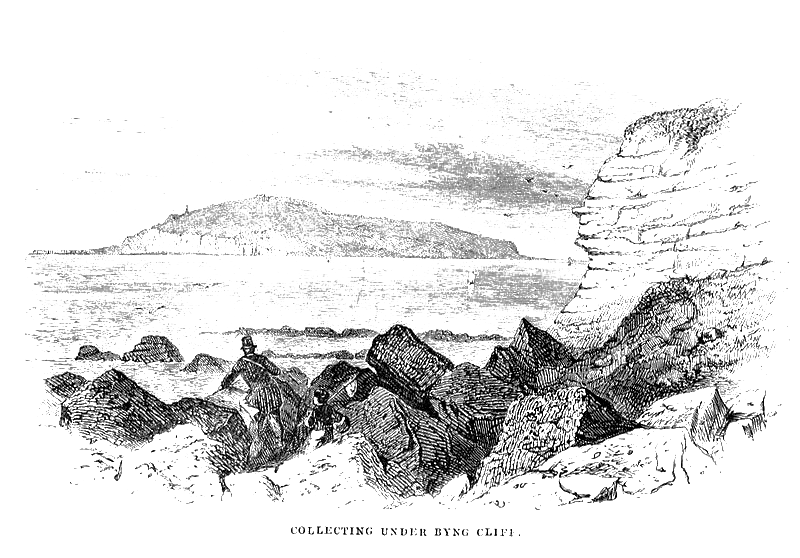
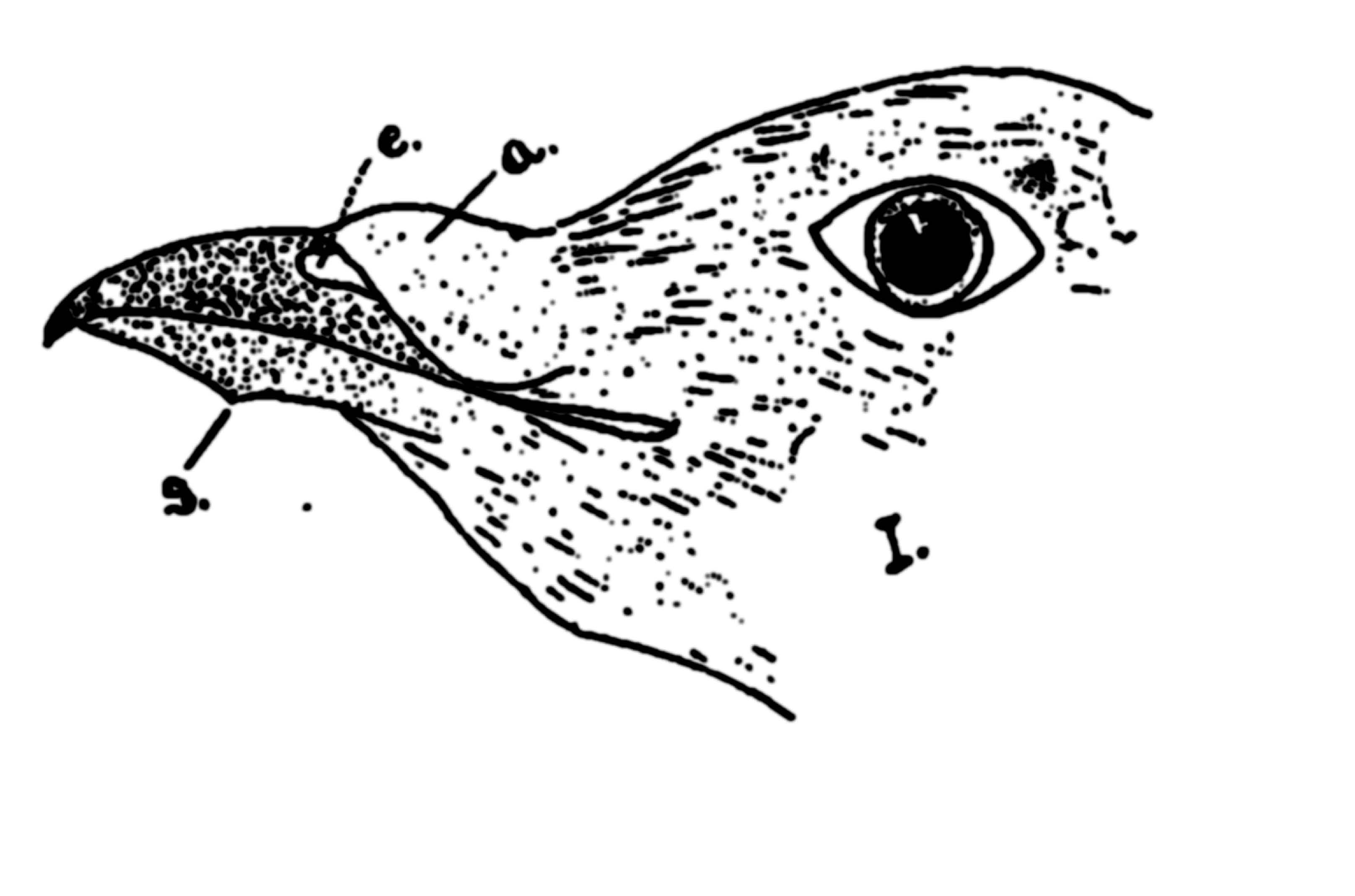 from
from